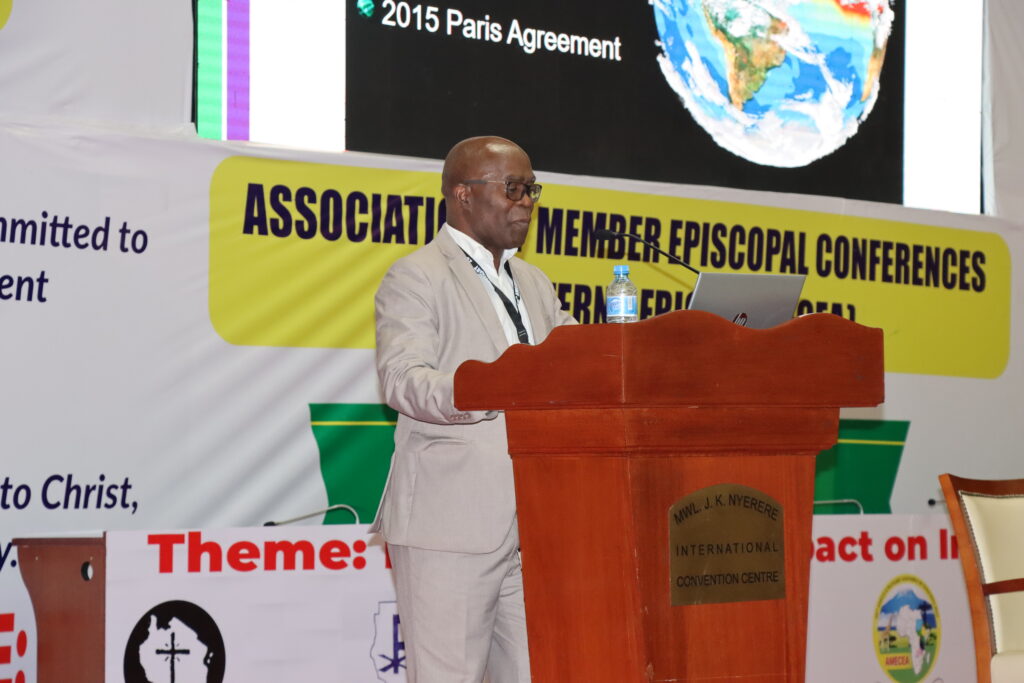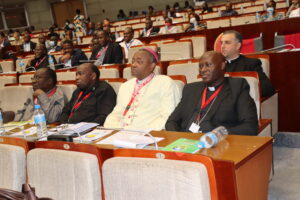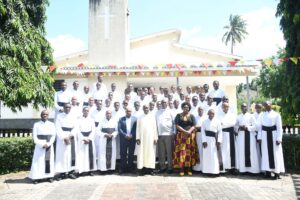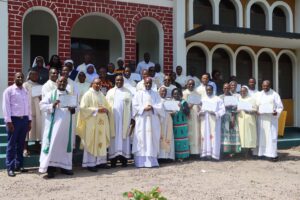AMECEA PLENARY: Why Environmental Degradation now? Plenary gives a Global Perspective

By Luke Bisani
From the 19th Plenary Assembly that was held under the theme “Vibrant Diversity, Equal Dignity, Peace Unity in God in the AMECEA Region” the bishops and delegates have yet met again in Tanzania-Dar es Salaam for the 20th Plenary where their focus has been on the Environmental Impact on Integral Human Development.
The Assembly in Tanzania has brought together delegates from all over the world on a table of discussion on environmental matters. But as the deliberations continue and await resolutions on the theme, the question stands, why is the Environmental Impact on Integral Human Development theme now?
Despite looking at the Pastoral work in the world, the Catholic Church has been so keen on matters affecting the population around the globe in all sectors. From health to conflict resolutions, the Catholic Church has been a hub of solutions to the problems affecting mankind. Now with the world facing one common enemy, Climate Change the Holy Father, Pope Francis took an extra mile in evangelizing the need to take care of “our common home”.
Through Laudato si, Pope Francis noticed that man has become an enemy of his common home through his action hence a need to work on the relation between man and mother nature before the human race is to face danger because of her actions on her. 
Reports of floods, rising temperatures, and pollution are some on the list that Pope Francis brought to the attention of all people in his encyclical letter Laudato si and called for action on caring for mother nature to reverse the trend.
Sharing Pope Francis’s concern for mother nature, the Bishops in AMECEA Region have opted to adopt Pope’s Francis steps in addressing the challenges of climate change in Tanzania for the 20th Assembly of the Catholic bishops.
During their deliberations, the bishops went through a global perspective of environmental degradation and its effects on mankind.
Making his presentation, one of the Senior Lectures at the Lilongwe University of Agriculture and Natural Resources in Malawi Dr. Steven Makungwa said scientific evidence shows that the world is to have more floods than before, the droughts are to be worse with more people being displaced.
Dr. Makungwa added that evidence shows the world will be food security challenges coupled with a lack of un fresh water just to mention some.
While citing an example from his home country, Dr. Makungwa disclosed that climate change has brought challenges to the energy sector as now the country is failing to generate enough electricity for the population due to environmental degradation.
The Malawian presenter hinted that the problem of energy has not only affected Malawi but some countries in the AMECEA region and Africa as a continent. He added that AMECEA countries can attest to the depression of natural forests reserves and their wildlife due to man’s action toward mother nature.
Looking at the global picture; the AMECEA delegates appreciated the fact that the Average Sea level around the world rose about 8 inches (20 cm) in the past 100 years and climate scientists expect it to rise more and more rapidly in the next 100 years as part of climate change impacts.
The delegates also looked at the projections that suggest climate change impacts within the next 100 years on the disappearance of the world’s glaciers and snow will have become a rare phenomenon at what is now the world’s most popular ski resorts.
The AMECEA delegates were also taken through the change in ecosystem whereby the rising temperatures at the equator have pushed such staple crops as rice north into once cooler areas and many fish species have migrated long distances to stay in waters that are the proper temperature for them.
As President of the United Republic of Tanzania Samia Suluhu Hassan said in her speech during the second day of the plenary session of the AMECEA conference, environment degradation demands joint hands hence commending the bishops for discussing the matter and pleaded for the resolution to be dropped on her table for action in the land of Kilimanjaro.


